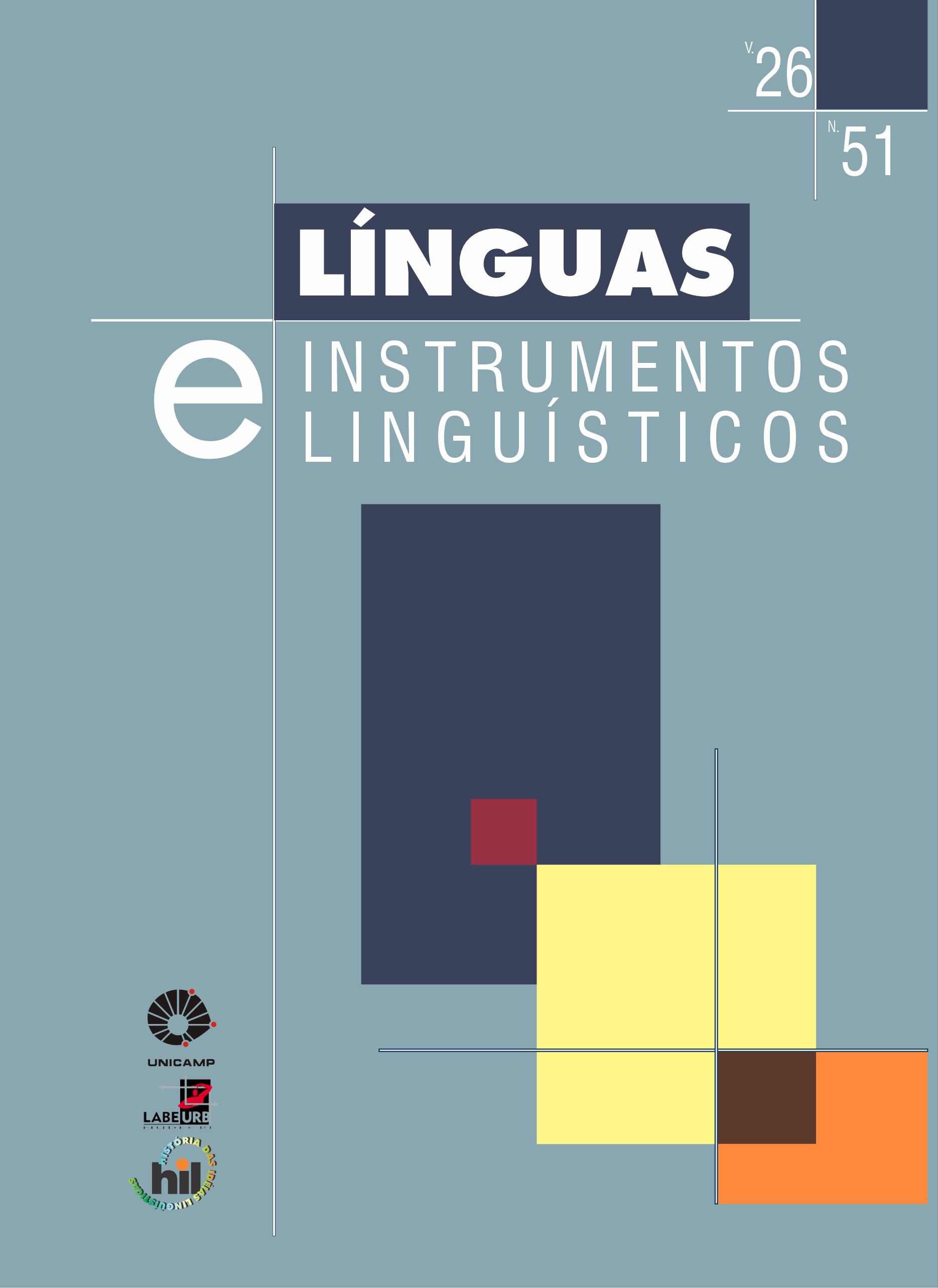Abstract
The objective of this text will be to present the constitution of what I have called the semantics of the event as a semantics of enunciation. The central course of the text will be, starting from the concept of enunciation space, which is decisive in this semantic configuration, dealing with methodological concepts such as the enunciative scene, and with descriptive concepts such as articulation and rewriting. In this way, it is expected to show the possible relationships and differences with domains such as pragmatics, for example. Theoretically, it is considered that the constitution of meaning is enunciative, produced by the political relations of the spaces of enunciation and the enunciative scene. It is under these conditions that we take the functioning of language, such as Benveniste, as what characterizes the enunciation, but we take this characteristic in the theoretical framework in which we move, thus treating the functioning as an assemblage produced by the event.
References
ALVES FILHO, I. Brasil, 500 Anos em Documentos. Rio de Janeiro, Mauad, 1999.
ANCHIETA, J. “Informação do Brasil e de suas Capitanias”. In Cartas. Informações, Fragmentos, Histórias e Sermões. Civilização Brasileira, 1933 (1584).
BACHELARD, G. O Novo Espírito Científico, Rio de Janeiro, Tempo Brasileiro, 1968 (1934).
BALLY, Ch. Linguistique Générale et Linguistique Française. Francke Berne, 1965 (1932)
BRÉAL, M. Ensaio de Semântica. Campinas Pontes, 1992 (1897).
CUNHA, A.G. Dicionário Histórico das Palavras de Origem Tupi. São Paulo, Melhoramentos/UnB, 1978.
DEULEUZE, G. e GUATTARI, F. Mil Platôs, Vol. 2. Rio de Janeiro, 34, 1997 (1980).
HANSEN, J. A. Manuel da Nóbrega. Fundação Joaquim Nabuco / Massanguana, Recife, 2010
DUCROT, O. “Esboço de uma Teoria Polifônica da Enunciação”. In Dizer e não Dizer. Campinas, Pontes, 1984.
GUIMARÃES, E. Texto e Argumentação. Campinas, Pontes, 1987.
GUIMARÃES, E. Semântica do Acontecimento. Campinas, Pontes, 2002.
GUIMARÃES, E. “Domínio Semântica de Determinação”. In A Palavra. Forma e Sentido, Campinas, Pontes/RG, 2007.
GUIMARÃES, E. “Enumeração: Funcionamento enunciativo e Sentido”. Caderno de Estudos Linguísticos, 51 (1), DL-IEL, Unicamp, 2009.
GUIMARÃES, E. “Espaço de Enunciação, Cena Enunciativa,Designação”. Fragmentum, 40. Santa Maria, UFSM, 2014.
GUIMARÃES, E. Semântica: Enunciação e Sentido. Campinas, Pontes, 2018.
GUIMARÃES, E. “Designar e Argumentar. Em torno de uma Divisão “Intransponível”, no. 25. UFRGS, Porto Alegre, 2021.
ORLANDI, E. P. A Linguagem e seu Funcionamento. Pontes, Campinas, 2001 (1983).
ORLANDI, E. P. Terra à Vista. São Paulo, Cortez / Editora da Unicamp, 1990.
RANCIÈRE, J. O Desentendimento. Rio de Janeiro, 34, 1996 (1995).

This work is licensed under a Creative Commons Attribution-NonCommercial-ShareAlike 4.0 International License.
Copyright (c) 2023 Línguas e Instrumentos Linguísticos


